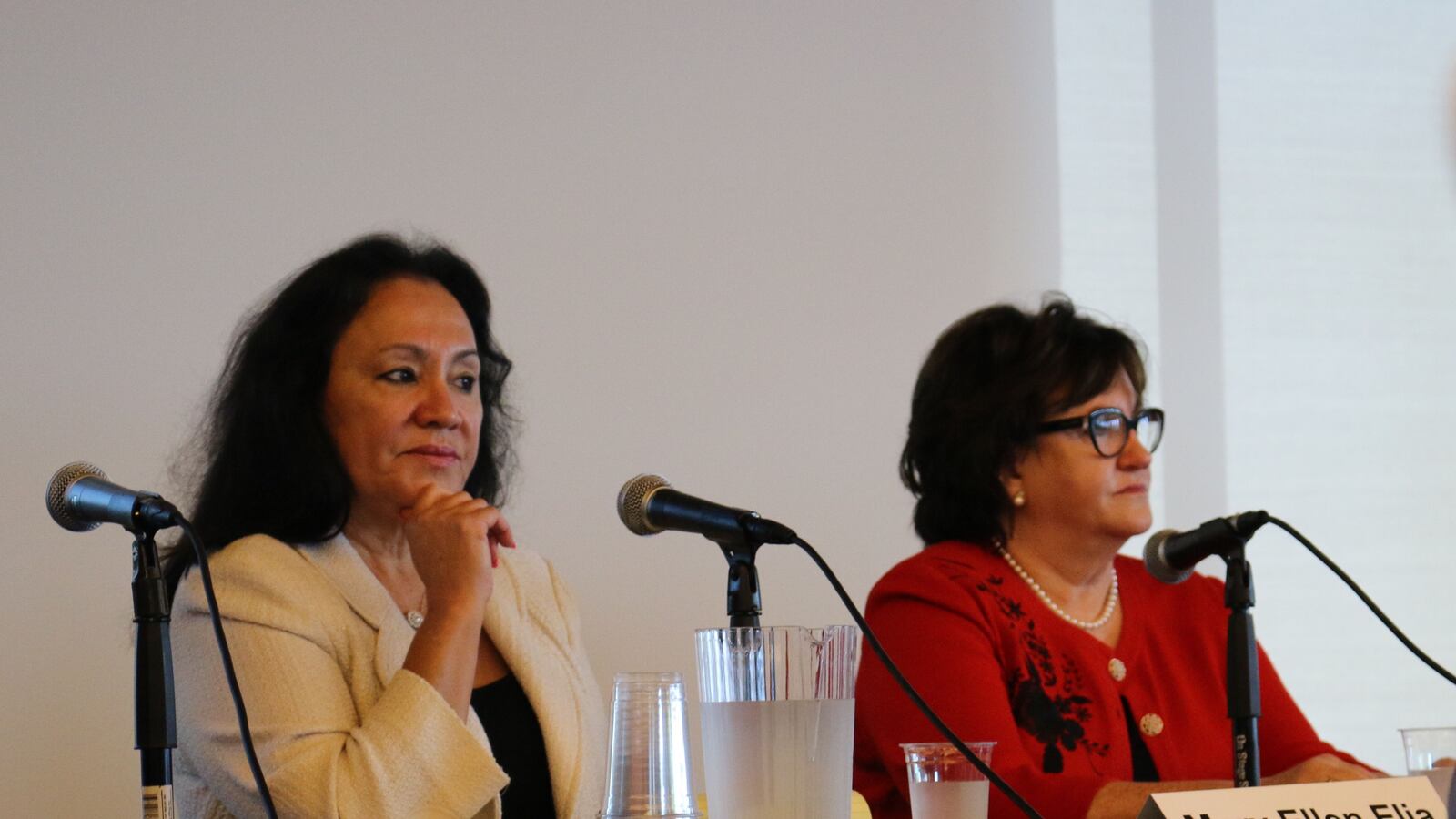The state teachers union rallied Monday for support to end computer-based state assessments after another set of glitches muddied reading exams last week for thousands of students across New York.
New York State United Teachers, joined by some state lawmakers, also want the state to reform its state assessments, including the scoring benchmarks used for reading and math tests.
“Enough is enough with these flawed, invalid state exams,” said NYSUT President Andy Pallotta in a statement. “Our students deserve much better from the state.”
MaryEllen Elia, the commissioner of the state education department, seemed to echo at least part of this sentiment, saying officials “were very, very disgusted” with the glitches, and Questar Assessment, Inc., the vendor who develops New York’s third-through-eighth grade reading and math exams. Betty Rosa, chancellor of the state Board of Regents, said Questar’s ability to deliver on a smooth exam-taking process “has been a failure for sure.”
Last Tuesday about 6,600 students couldn’t complete their computer-based reading exams because the system’s server was overwhelmed — 93,100 students were taking electronic tests, provided by Questar, that day. Computer-based tests took place only at schools that volunteered to try it. Of the 25 New York City schools that participated, nine were testing on the day the snafus were reported.
Computer-based testing was halted for one day as the state and Questar diagnosed and worked to address the issue. Last week, Elia promised to hold Questar financially responsible for any expenses school districts had to cover because of the computer issues.
It was the second year Questar reported problems with its testing, prompting backlash from the NYSUT and Council of School Superintendents.
In a statement last week, Questar COO Brad Baumgartner said the company understands “the frustration,” and his team had worked “around the clock” to fix the problem.
Last week, Elia said the department is not considering severing its contract with Questar since paper-based testing — how most schools test their students — is part of an existing $44.8 million agreement between the state and the vendor, at least through November 2020.
And while the rollout of statewide computer testing will have to be studied, Elia pushed back Monday, as she had last week, on halting computer-based testing altogether. She said it’s essential for students to interact with technology in this day and age, and the schools that opted to use computer-based testing “want to provide that opportunity.”
“How many of you use technology all the time? I think you all do,” Elia said to reporters.
But members of the Board of Regents expressed more concern at a working group later Monday, where they were briefed on what happened last week. Some shared their distrust of Questar, and others wondered how an eventual rollout of statewide electronic testing might work.
“Do we have the capacity to do this successfully?” asked Regent Lester Young. “I’m trying to understand: What is the evidence that would suggest everything on the table won’t be a pattern next year?”
Elia said that state education officials will seek proposals for a new contract once their deal with Questar expires and will seek out a company that can handle the size of New York’s student population.
This story was updated after a meeting late Monday afternoon.

